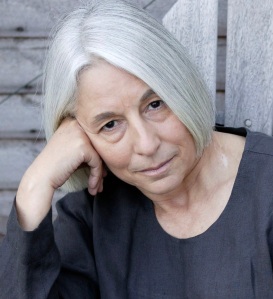
It has often been said that everyone has a story to tell and it certainly appears that the adage holds truth. Memoir, or Life writing, is a genre which has flourished in recent years. Mary Karr writer, memoirist and teacher defines the genre in her recent book The Art of Memoir “Novels have intricate plots, verse has musical forms, history and biography enjoy the sheen of objective truth. In memoir, one event follows another. Birth leads to puberty leads to sex. The books are held together by happenstance, theme, and (most powerfully) the sheer, convincing poetry of a single person trying to make sense of the past.”
Last month, I read the memoir In Gratitude by Jenny Diski and started thinking about why she felt compelled to write down her story, which she writes as she is dying from cancer. It was not the easiest of reads. Her life was extremely turbulent. As a girl she was shown no boundaries by either parent and was forever in trouble, becoming more emotionally unstable, as she was shunted between care-givers and mental institutions. At fifteen Diski is asked by esteemed author Doris Lessing to share her home; an act prompted by Lessing’s son Peter, who knew the girl through school. Jenny Diski meets Lessing for the first time when the girl arrives at her front door. Why Lessing agreed to this supposed act of kindness, is not revealed in Diski’s account, for she describes the experience in her home as anything but welcoming. She finds no warmth, nor affection from Lessing and is left to naively navigate the older company of Lessing’s intellectual friends.

Doris Lessing
The candid narrative rambles, shuttling back and forth across her life, but returns again and again to Lessing. Despite the title of Diski’s book, she writes of pent up frustration, anger and ingratitude towards the woman to whom she believes she should feel gratitude, for Doris Lessing was in some way the only family Diski could lay claim to. Perhaps without Lessing she would not have become an author of eighteen books? It did make me wonder if Diski becoming an author was also an act of defiance?

Jenny Diski
My thoughts on why this woman chose to write a memoir are related to her early life experiences. She needed to set the record straight. To let people know that the rebellious, troubled girl who been told over and over, by neglectful, abusive parents, teachers and doctors that she would never amount to anything, that she possessed more worth, intelligence and potential than the narrative which enshrouded her. Diski fought her whole life to prove she existed; that she was a person to be loved. It was pleasing to learn that she became a mother to a daughter whom she loved dearly and that she and Diski’s partner were with her throughout her last struggle with life.
There have been many reviews of Jenny Diski’s In Gratitude. Below is the last paragraph from a review written by Blake Morrison in The Guardian, 15thApril, 2016. ‘In Gratitude works on many levels: as a memoir of an unusual adolescence; as an essay on family dysfunction; as an intimate mini-biography of a Nobel-prize-winning novelist; and as an unillusioned meditation on illness and death. At its heart, though, is the story of a difficult relationship between women, both, as it happens, outstanding writers. However prolific she has been in the past – 18 titles by my count – it’s the story Diski most needed to tell.’
There are many voices which need to be heard and memoir offers a way to affect that end.
